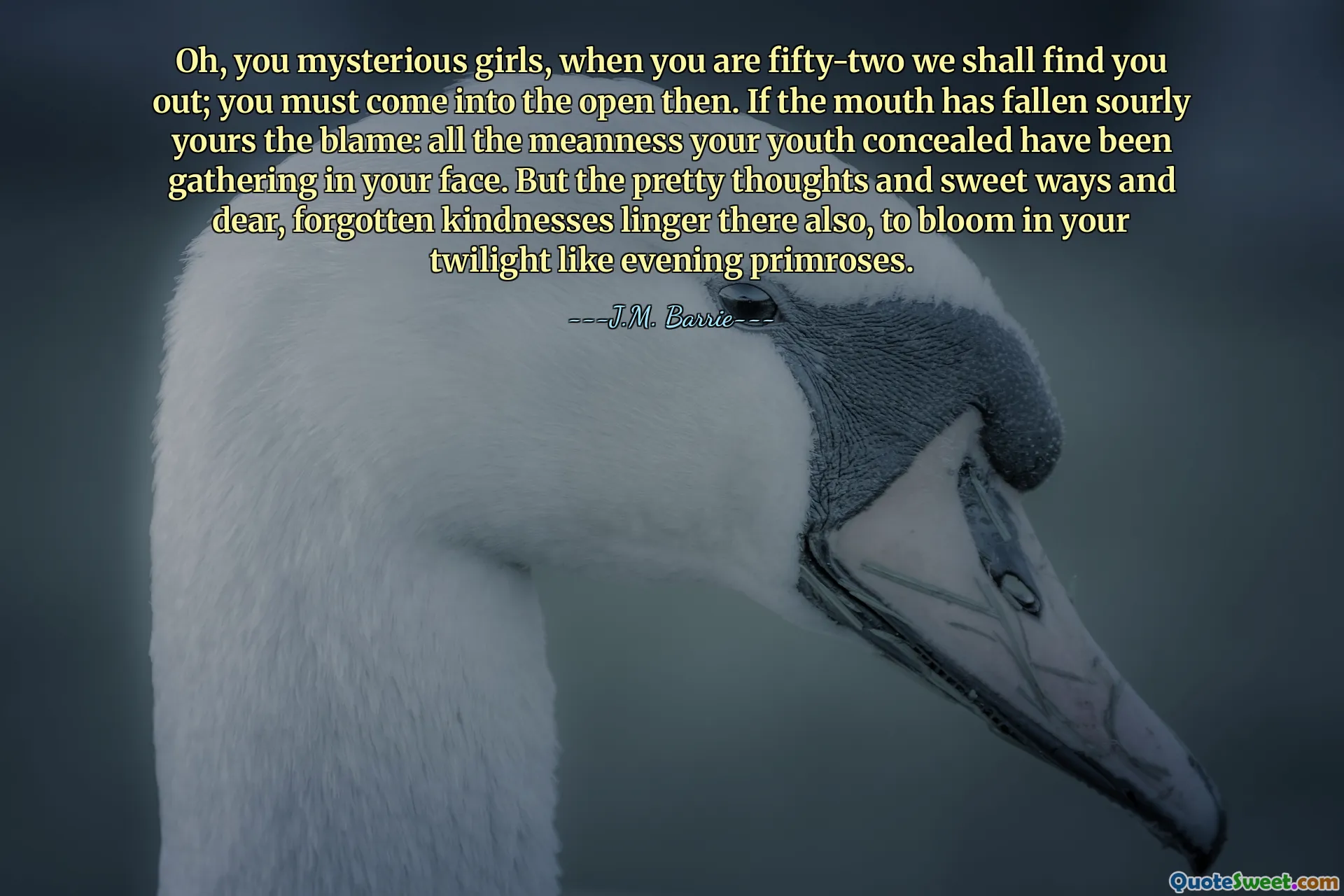
Oh, you mysterious girls, when you are fifty-two we shall find you out; you must come into the open then. If the mouth has fallen sourly yours the blame: all the meanness your youth concealed have been gathering in your face. But the pretty thoughts and sweet ways and dear, forgotten kindnesses linger there also, to bloom in your twilight like evening primroses.
This quote beautifully captures the complex journey of aging and the enduring nature of inner kindness and youthful innocence. It suggests that as women grow older, their outer appearance may reveal the passage of time, perhaps with lines or expressions that hint at life's hardships or what has been concealed beneath youthful facades. However, amidst these changes, there's an inherent dignity in acknowledging both the imperfections and the treasures of their inner selves. The idea that meanness or bitterness accumulating over years might show on the face is juxtaposed with the notion that kindness, sweetness, and gentle thoughts also leave traces—like delicate evening primroses blooming at twilight, symbolic of maturity and the quiet beauty that often becomes more apparent with age. It invites reflection on the layered experiences that shape a person, recognizing that aging is not simply loss but also the emergence of a deeper understanding of oneself and others. The metaphor reminds us that outward appearances are only one part of a person's story. The generous, tender aspects of character — those discernible in the way someone moves, speaks, or looks at life — persist, sometimes subtly hidden, waiting for the right moment to be noticed. It’s a call for compassion and an appreciation of the full spectrum of human aging, appreciating that with time, a person’s inner warmth and kindness can shine more brightly than ever, blooming like evening primroses in the evening of life. Such reflections can inspire us to cherish not only our youthful looks but the deeper beauty forged through lived experience.











